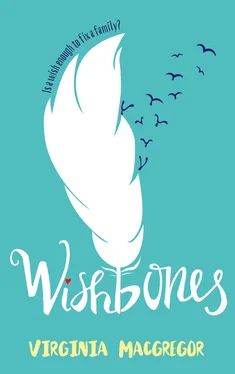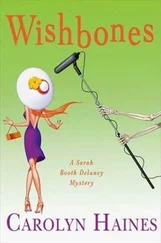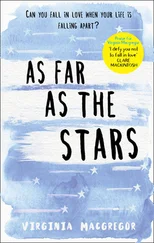Only I’m determined that Mum won’t slip back into the habits that made her sick.
‘So you don’t mind, Mum?’
‘No, I don’t mind.’
Mum threads her fingers through my wet hair. She’s told me that when I was born my hair was blonde, not brown, and that when she held me in her arms for the first time, stroking my downy hair, she thought: Light as a feather with hair like washed-out sunshine.
Mum leans over and kisses the top of my head.
Mitch Banks clears his throat. ‘When you walked in, I was inviting your mother to join the group.’ He beams.
‘Seriously?’ I jump up and skip around the table. ‘ Really , Mum?’
Mum nods again.
‘We can go together. Steph could drive you—’
‘Let’s not bother Steph,’ Mum says.
The only other option is Dad’s van, except Mum wouldn’t fit on the front bench. I get this picture of Mum sitting in the back, surrounded by sinks and toilet bowls and pipes and screws, the van leaning to one side, one of its tyres hissing because it’s collapsed from carrying so much weight.
‘Or you could walk,’ I suggest. ‘We could take it really slow.’
It took hours for the swelling in Mum’s ankles to go down after the walk from the car to the lounge on the day she came home from hospital. Her feet had bulged out of her slippers, her tracksuits was drenched in sweat. But that just proved that she had to do it more, didn’t it?
‘We’ll see, my darling.’
‘Did you eat my bran muffins, Mum? Nurse Heidi said you have to eat regularly. Healthy things. Low GI. Slow-burning.’
Mum licks her lips, in the way she does when she’s just had a packet of crisps. I really hope Dad hasn’t been feeding her again.
‘I did. They tasted like upholstery.’ Mum laughs.
‘Hey!’
‘I’m just saying it like it is, love. And anyway, Houdini enjoyed the leftovers.’
Mum feeds Houdini things through the lounge window. ‘He didn’t look too impressed either.’ Mum turns to Mitch. ‘Is there anything I can eat that tastes like proper food?’
‘There sure is,’ says Mitch. ‘I’ll drop in some recipes.’
My heart’s going to explode I’m so happy at how positive Mum’s being.
Mitch stands up. ‘I’d better get going.’ He holds out his hand to Mum. ‘I’ll be in touch.’
I get up too. ‘I’m sorry I was rude. We’ll see you on Tuesday, won’t we, Mum?’
I put my arms around Mum’s neck and give her a hug.
‘We’re all going to help you get better.’
And then I squeeze Mum tight and close my eyes and feel so grateful that she’s making an effort.
Only, just as I’m holding her close, my face close up to hers, I can smell prawn cocktail crisps on her breath.
10
Although it’s the first day of school after the holidays and although I know that everyone’s going to be talking about New Year’s Eve and Mum being carried out of the house like a beached whale, I woke up feeling springy. Mum’s agreed to take part in a Slim Skills meeting and that’s a first step, right? And maybe, by the meeting on Tuesday, I’ll have found a way to get Mum and Steph to talk and then Steph can come too, for moral support. And maybe I’ll be able to persuade Mum to walk there, or at least walk part of the way, which would be a humungous step.
I knock on Mum’s door.
‘Mum? It’s me.’
When she doesn’t answer, I go in. I find her asleep, her feet poking out of the end of her duvet. Knots of spider veins circle her ankles and her toes are swollen like pale cocktail sausages. And she’s snoring.
I go and kiss Mum’s cheek and whisper in her ear: ‘I’ve made you a yummy breakfast, Mum.’
She stirs but doesn’t wake up, so I run downstairs to get the Bircher muesli I put together last night. I found the recipe in Cook. Eat. Live . It’s this gloopy mix of yoghurt and nuts and dried fruit and oats and grated apple that melds together overnight. Swiss people eat it before they go zooming up mountains and it keeps them going for ages. My plan is to fill Mum up with food that keeps her going for longer, that way she won’t stuff herself with prawn cocktail crisps and Galaxy bars and pineapple syrup.
Except, when I get to the kitchen, I smell frying.
And then I see Dad emptying a pan of greasy sausages and buttery mushrooms and fried eggs onto a plate.
‘Dad!’
He jumps. A mushroom slips off the side of the dish; it looks like a slug lying there on the kitchen tiles.
‘You scared the life out of me, Feather.’
‘I’ve made Mum’s breakfast already,’ I say.
I go to the fridge and take out the muesli.
‘Your mum’s not going to eat that.’ Dad puts the serving dish on Mum’s tray. Then he tucks a wad of kitchen paper under the plate.
‘And she is going to eat crisps, right?’
‘Sorry?’
‘I know you gave her crisps, Dad. You can’t keep doing this.’
‘We’ll put your breakfast on the tray too,’ Dad says. ‘Then she can choose.’
I shake my head.
‘No, Dad. If you give Mum a choice, you know what she’s going to pick.’ I take a breath. ‘We have to make sure that Mum doesn’t take in more calories than she burns.’
‘It’s going to take more than salad and muesli to get your mum well, Feather.’
‘I know, Dad. But we have to start somewhere.’ I must be the only teenager on the planet who’s trying to convince her parents to eat healthily.
Dad nods like he always does when he disagrees but doesn’t want a fight. I look at his tufty hair and at the wrinkles on his forehead and at the puffy baggy bits under his eyes because he’s been out on so many night shifts. And, for a second, I think he’s going to give in. But then he just comes over and takes my bowl of muesli and puts it on the tray and goes to Mum’s room.
That’s another classic Dad move: when he doesn’t want to fight back, he goes quiet and does what he wants anyway.
‘It’s not right, Dad!’ I yell after him.
But he doesn’t turn round.
Maybe I can get Mitch to talk to Dad. Or Nurse Heidi. He needs facts and statistics, hard evidence. Like the fact that when people as big as Mum don’t get to a healthy weight, they could die.
As I walk past the vicarage, I notice that the suitcase has disappeared from Rev Cootes’s front steps. I go and stand by the school minibus stop; it’s next to the row of graves where the little kids are buried. Rev Cootes fusses more over the flowers on those graves than over the old people ones. In the summer, they’re so full of roses and pansies and dahlias that you can hardly read the inscriptions any more.
Looming over the children’s graves stands the stone statue of an angel with droopy wings and an inscription that reads:
Our Little Angels. You’ll always be with us.
A few of the gravestones have photographs of the children tucked behind glass frames, but mostly, there are just names and dates, especially on the really old ones. Some of the graves date back hundreds of years. Miss Pierce, my History teacher, explained that in the old days kids got more diseases than they do now and that it was harder to save them because medical science wasn’t as advanced.
Although I’ve stood next to those small graves a million times waiting for the school minibus, the tight feeling across my chest never goes away. There’s something wrong about kids dying before they’ve had the chance to do anything with their lives. Plus, looking at the graves makes me think about Mum and how she nearly died, and that makes me even more determined to get her better – and to make sure Dad stops feeding her rubbish.
‘Morning, Feather!’
I look up. It’s Mrs Zas standing on the doorstep of her fancy-dress shop, waving at me.
Читать дальше












